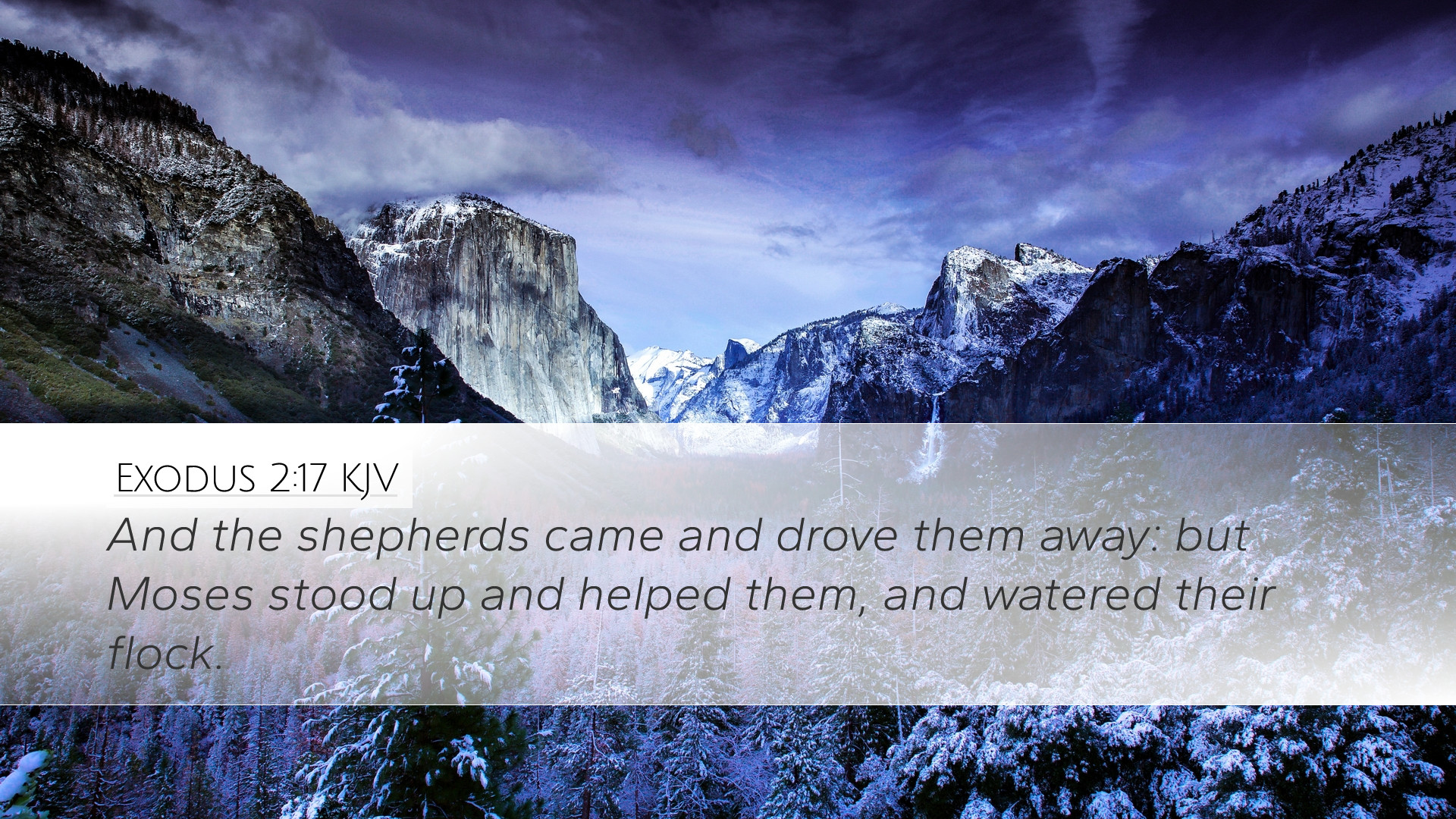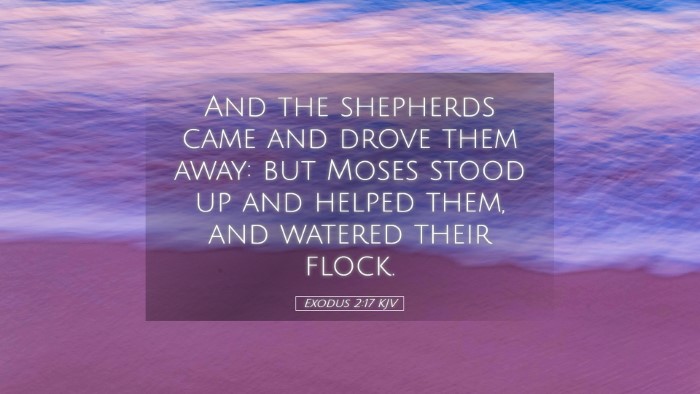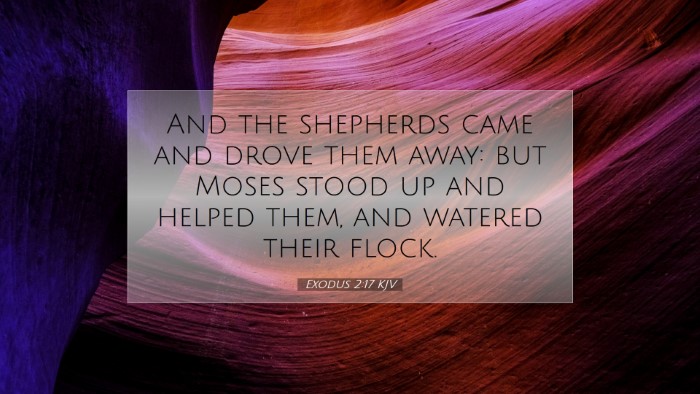Exodus 2:17 - Commentary and Insights
Scripture Reference: Exodus 2:17 (KJV) - "And the shepherds came and drove them away: but Moses stood up and helped them, and watered their flock."
Context of Exodus 2:17
The events leading up to this verse occur during Moses' exile in Midian after fleeing Egypt. Having sensed the burden of his Hebrew brethren, Moses intervenes and kills an Egyptian who was beating a Hebrew. Fearing the repercussions, he escapes to Midian, where he encounters the daughters of Jethro, a priest of Midian, who were being oppressed by local shepherds.
Commentary Insights
Matthew Henry's Commentary
Matthew Henry highlights that Moses, though fleeing from Egypt, demonstrated a natural inclination to help those in need, even while in a foreign land. His action in standing against the shepherds illustrates his innate leadership qualities and compassion for the oppressed. Henry points out that Moses did not merely defend the daughters of Jethro but took proactive steps to assist them, showcasing his character and the moral imperative of aiding others.
Albert Barnes' Notes
Albert Barnes provides additional insight into the societal context. He notes that Moses' protective instincts are emblematic of the struggle between oppression and deliverance. By intervening, Moses aligns himself with the oppressed, foreshadowing his eventual leadership role in delivering the Israelites from Egyptian bondage. Barnes emphasizes the significance of Moses' actions, tying them to the overarching narrative of redemption that permeates the Bible.
Adam Clarke's Commentary
Adam Clarke elaborates on the idea of wilderness preparation. He suggests this incident was pivotal for Moses, as it not only demonstrated his courage but also prepared him for his future role as the leader of Israel. Clarke infers that helping Jethro's daughters further endears Moses to Jethro, ultimately establishing familial ties that would bear fruit during Israel's exodus. This moment reaffirms that God often prepares future leaders in humble circumstances, teaching them the importance of service and righteousness.
Theological Applications
Exodus 2:17 has several theological implications, particularly relevant for pastors, students, and theologians:
- The Call to Justice: Moses’ actions challenge believers to respond to injustice and oppression, mirroring God's concern for His people.
- Developing Leadership: This verse illustrates the formative experiences that shape leaders, emphasizing that God often prepares His servants through trials and acts of service.
- Compassionate Action: The narrative emphasizes the importance of compassion in leadership; true leaders are those who respond to the needs of others.
- God's Sovereignty: Even in Moses’ exile, God is orchestrating events that align with His divine plan, reminding us of His ongoing providence in our lives.
Practical Reflection
As ministers and scholars reflect on this verse, it invites them to consider how they might respond to the cries for help in their communities. Like Moses, they are called not only to lead but to assist actively those who are oppressed, reinforcing the idea that godly leadership is inherently tied to serving others. This scripture shows that effective ministry often begins with acts of compassion and service.
Conclusion
Exodus 2:17 presents a significant moment in the life of Moses that showcases themes of justice, compassion, and divine preparation. The insights from Matthew Henry, Albert Barnes, and Adam Clarke illuminate the depth of this verse, providing a rich tapestry of guidance for spiritual leaders and scholars alike. In understanding Moses' character and actions, modern readers are urged to pursue justice and embody service in their ministry and daily lives.


